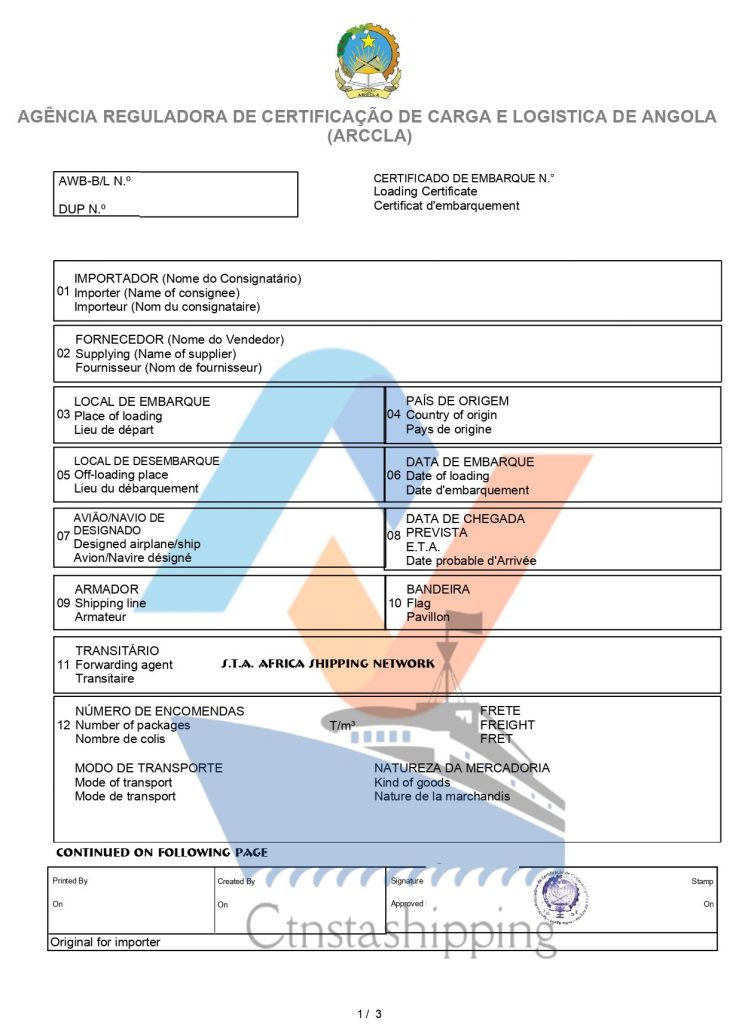Equatorial Guinea ECTN
Equatorial Guinea implemented a new regulation in 2000 that made all shipments to Guinea obliged to be accompanied by an ECTN certificate. If this certificate is absent, there will be severe consequences and an enormous penalty. It is mandatory for Bata and every other port. In some cases, there might be an exception where the ECTN certificate isn’t necessary if you are using Equatorial Guinea for transit purposes.
Although a certificate as crucial as this one mustn’t get missed by anybody who is exporting to Equatorial Guinea, it is one of the most overlooked certificates.
What are the required documents?
- Bill of Lading: It contains details about the exporter, the importer, the weight of the goods, the shipping line, the vessel name, etc.
- Freight Invoice: Freight Invoice: This is only a requirement if the freight cost is not on the Commercial Invoice.
- Commercial Invoice: It contains the details of the goods, the freight cost, the incoterm, and some other charges if there is any, etc.. Freight Invoice: This is only a requirement if the freight cost is not on the Commercial Invoice.
- Documento Unico: Documento Unico: This document is an Import License in Angola. It is also known as DU. When applying for a CNCA, DU’s expiry date has to be valid. It is generally 60 days from the date of DU issuance.

What are the consequences of not having it?
The regulation states that the certificate must be delivered five days before the vessel arrives at the latest. If you don’t meet these requirements, you would be facing a fee twice the amount of the ECTN cost plus the regulation fee determined by the Equatorial Guinea National Port Officials.
Pricing
Certificate cost depends on the number of Bill of Ladings and the containers, the country of origin, the port of discharge, etc. This is why we can’t give you an exact price for the ECTN. But if you share your shipment’s details with us we can provide you the best charges for your certificate. We offer free quotation.

